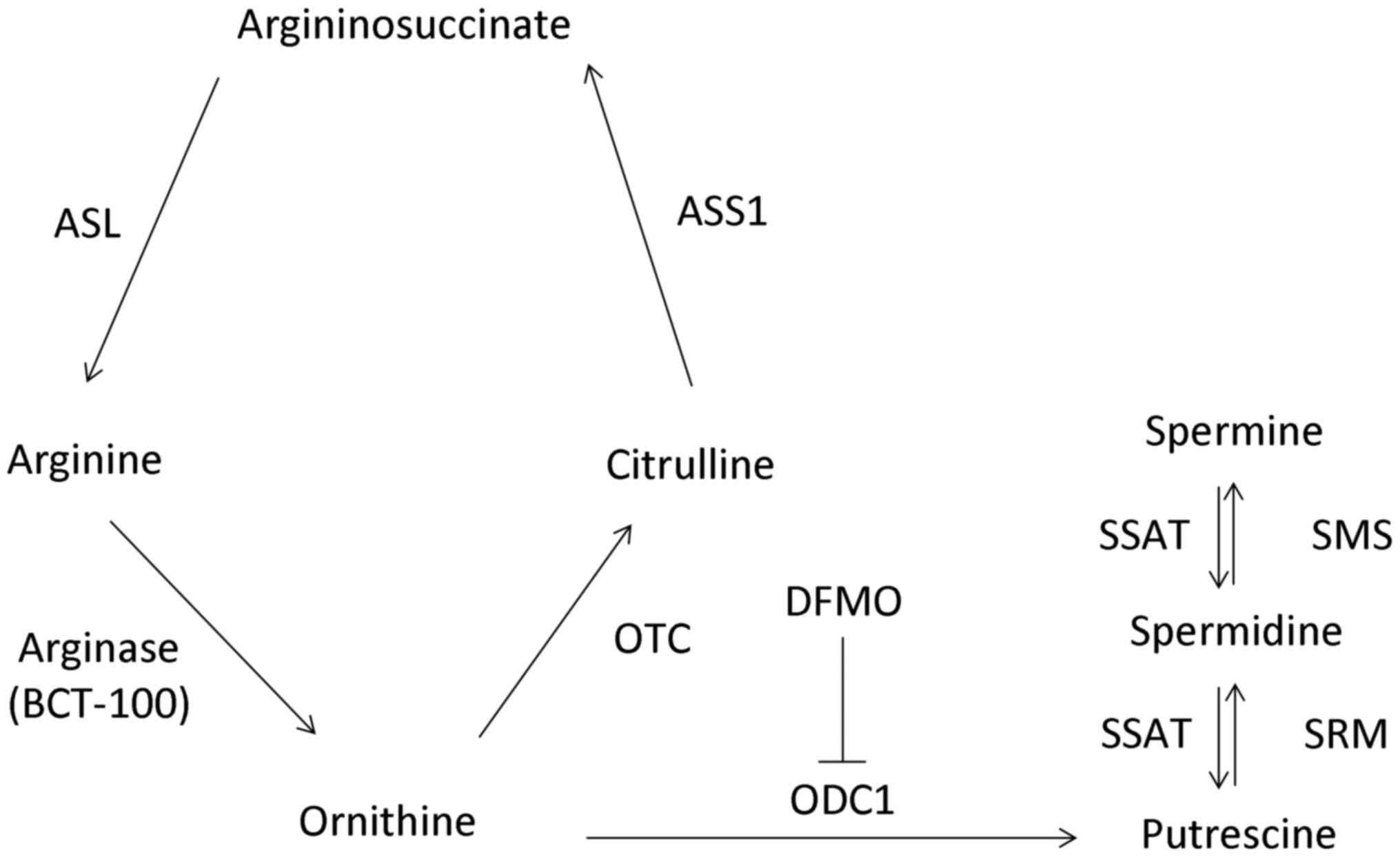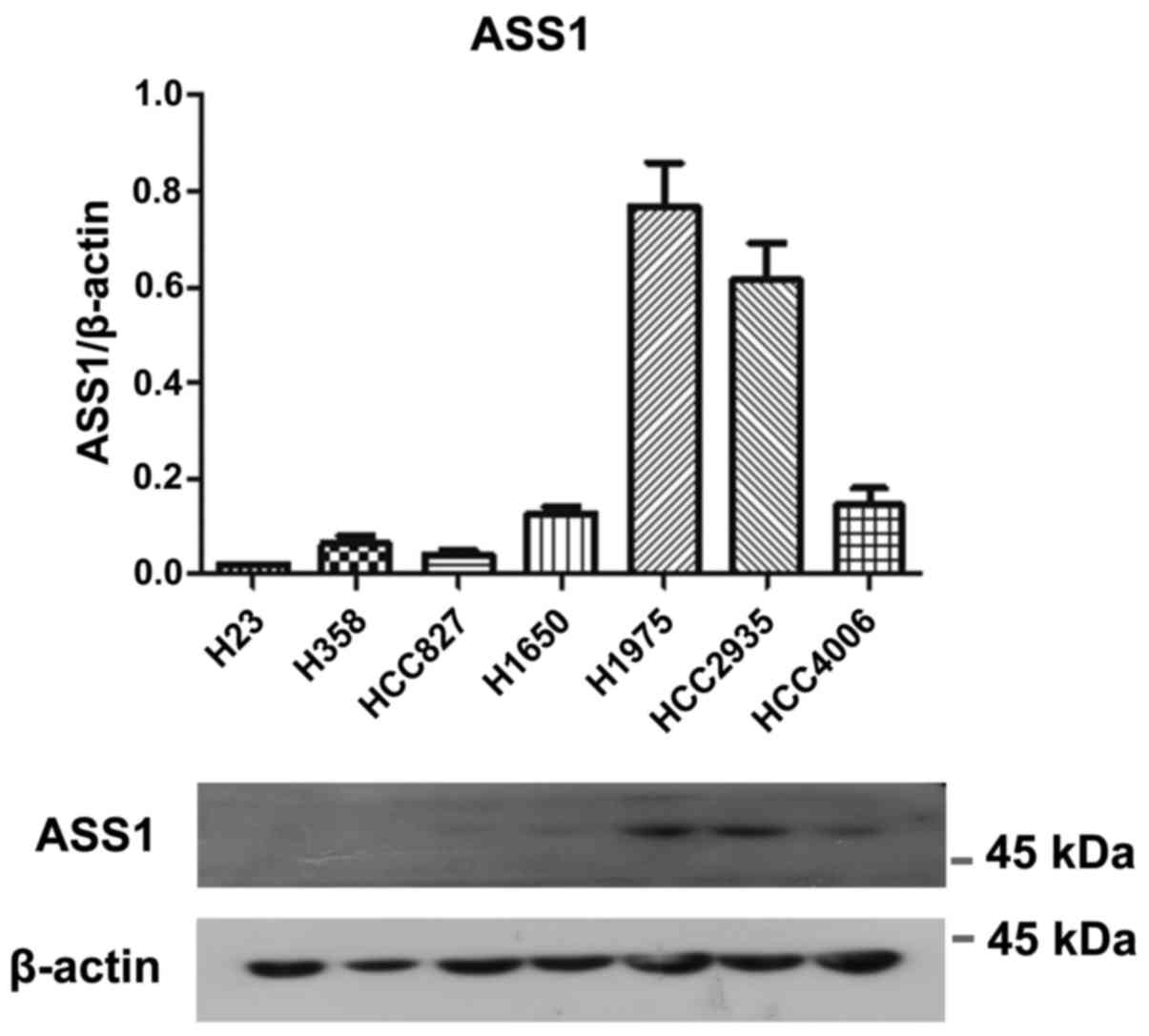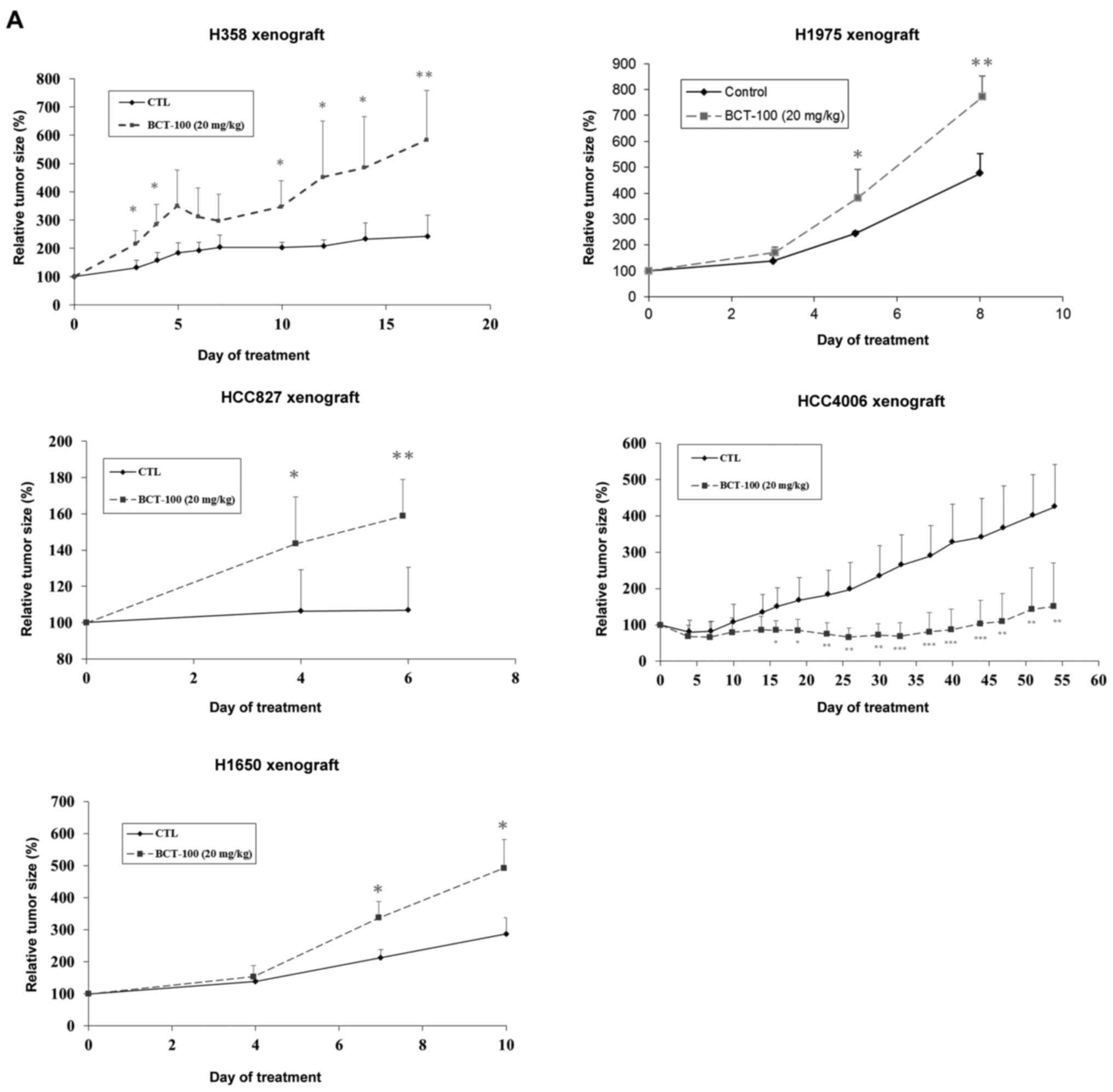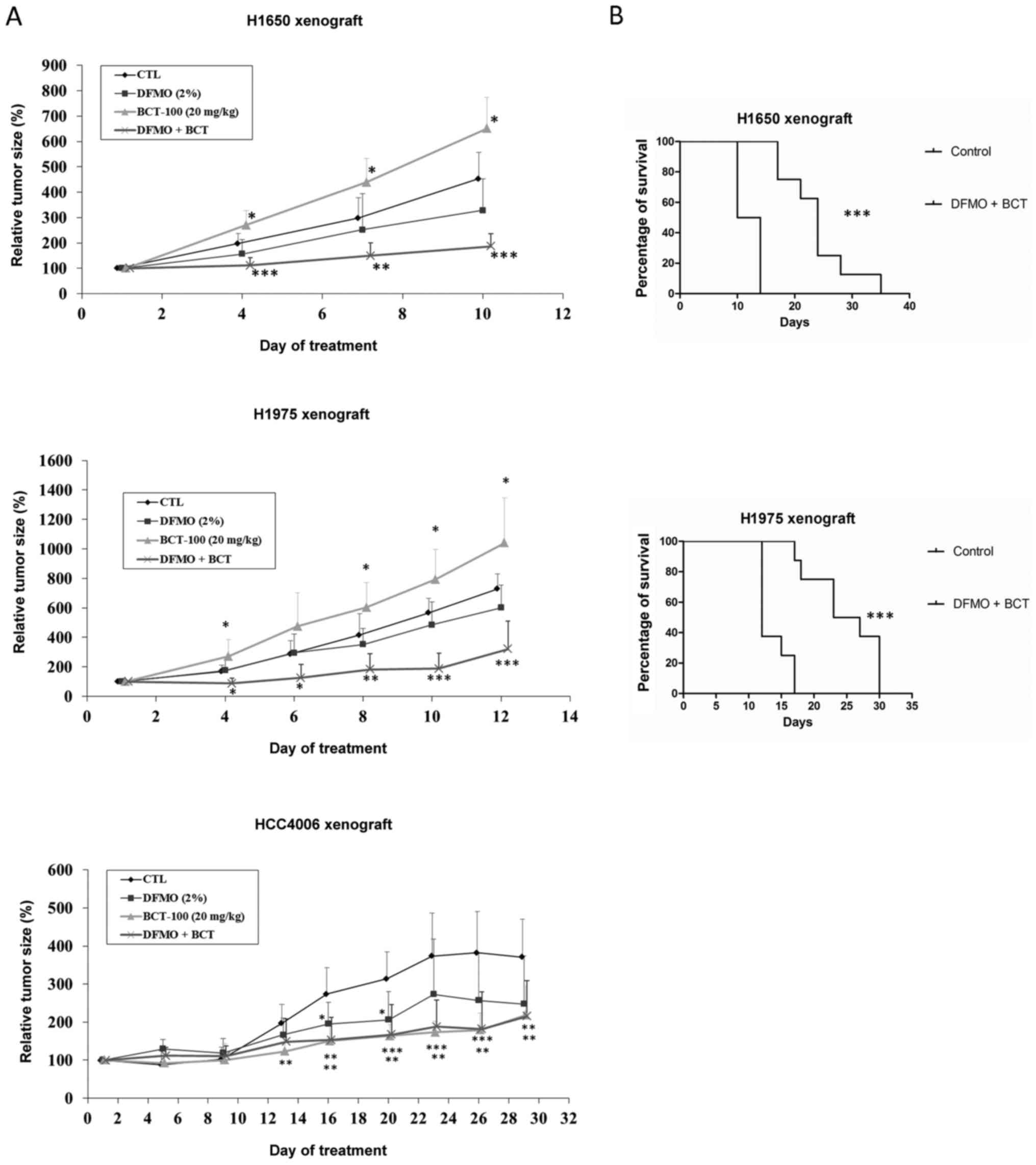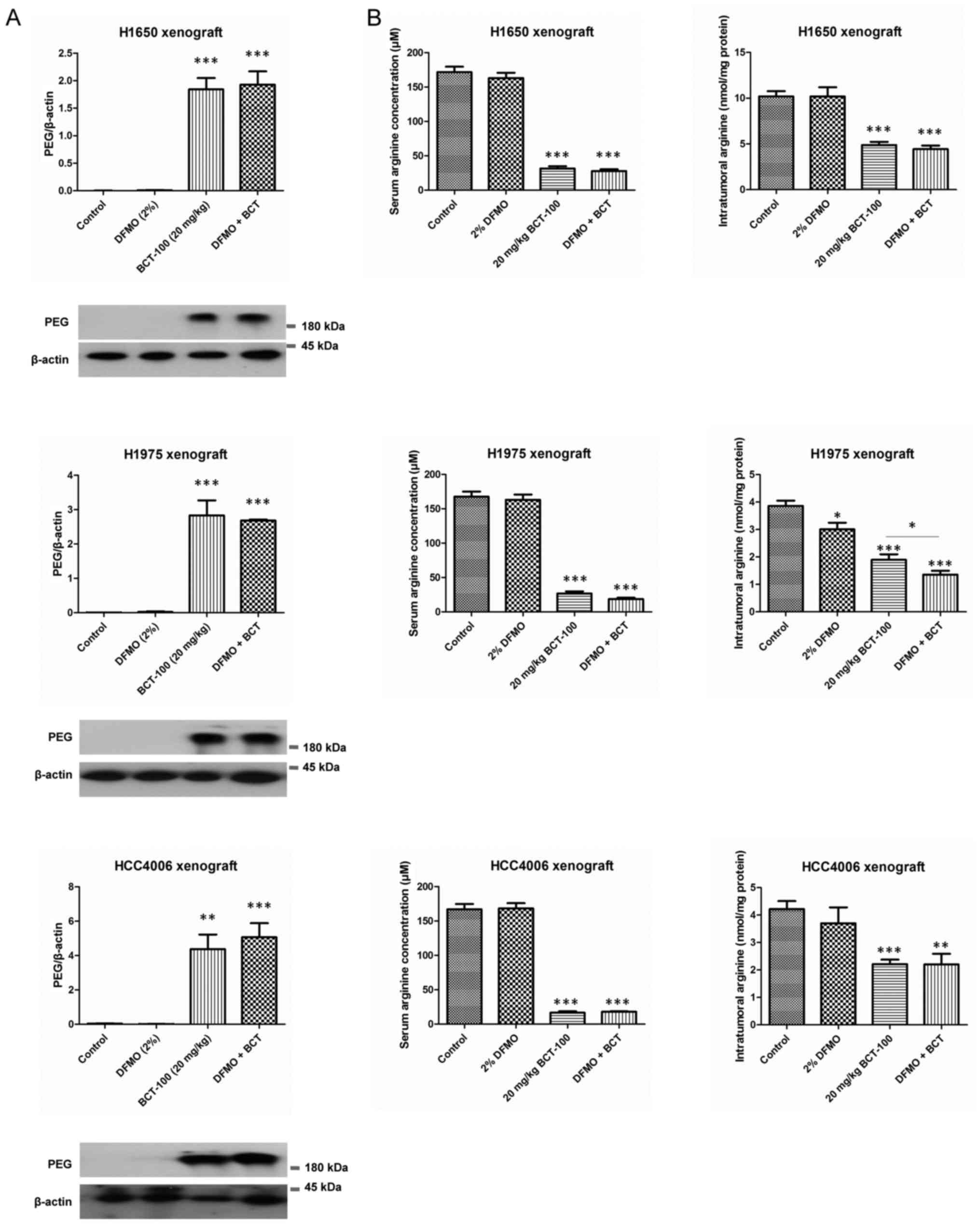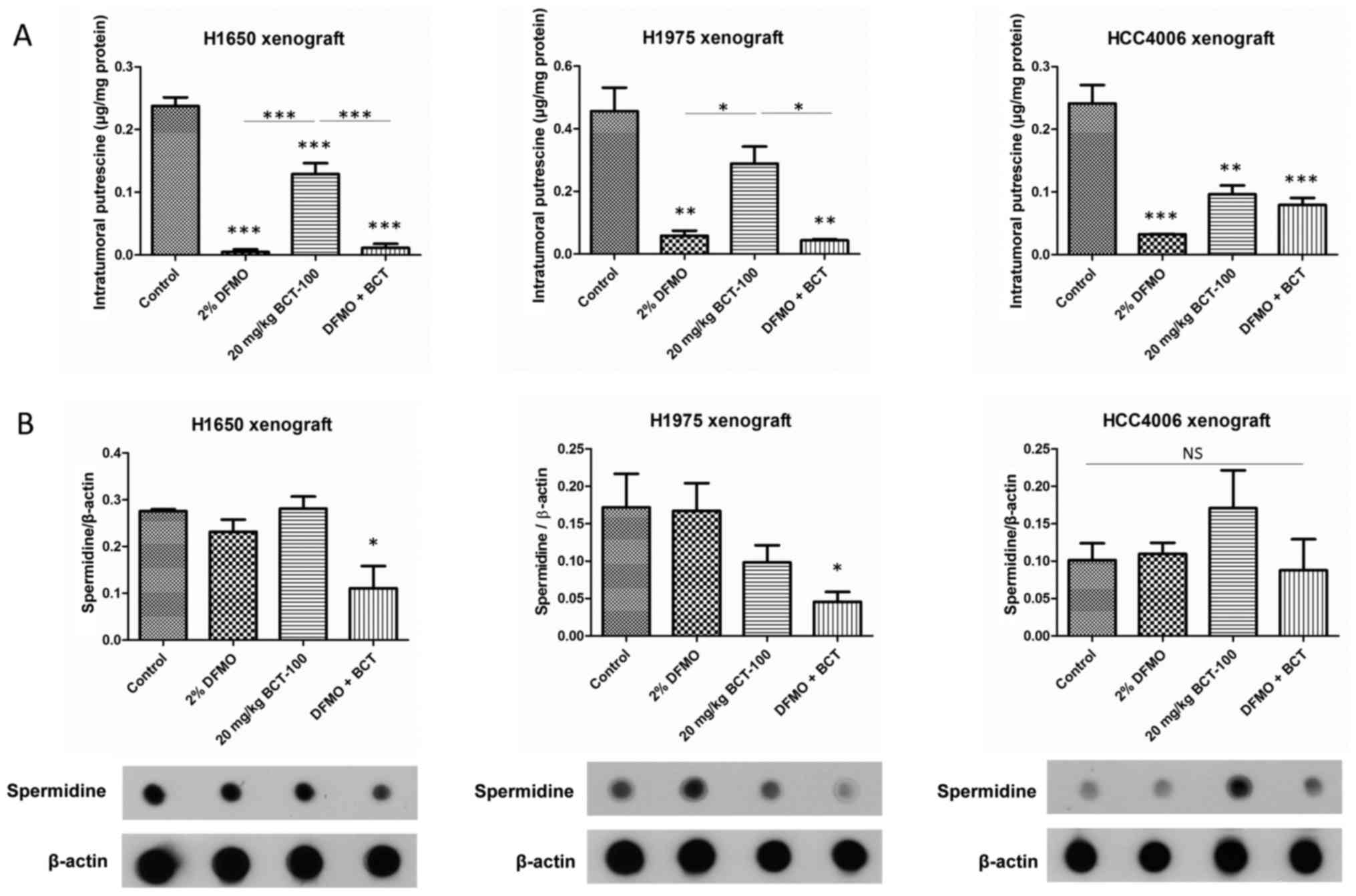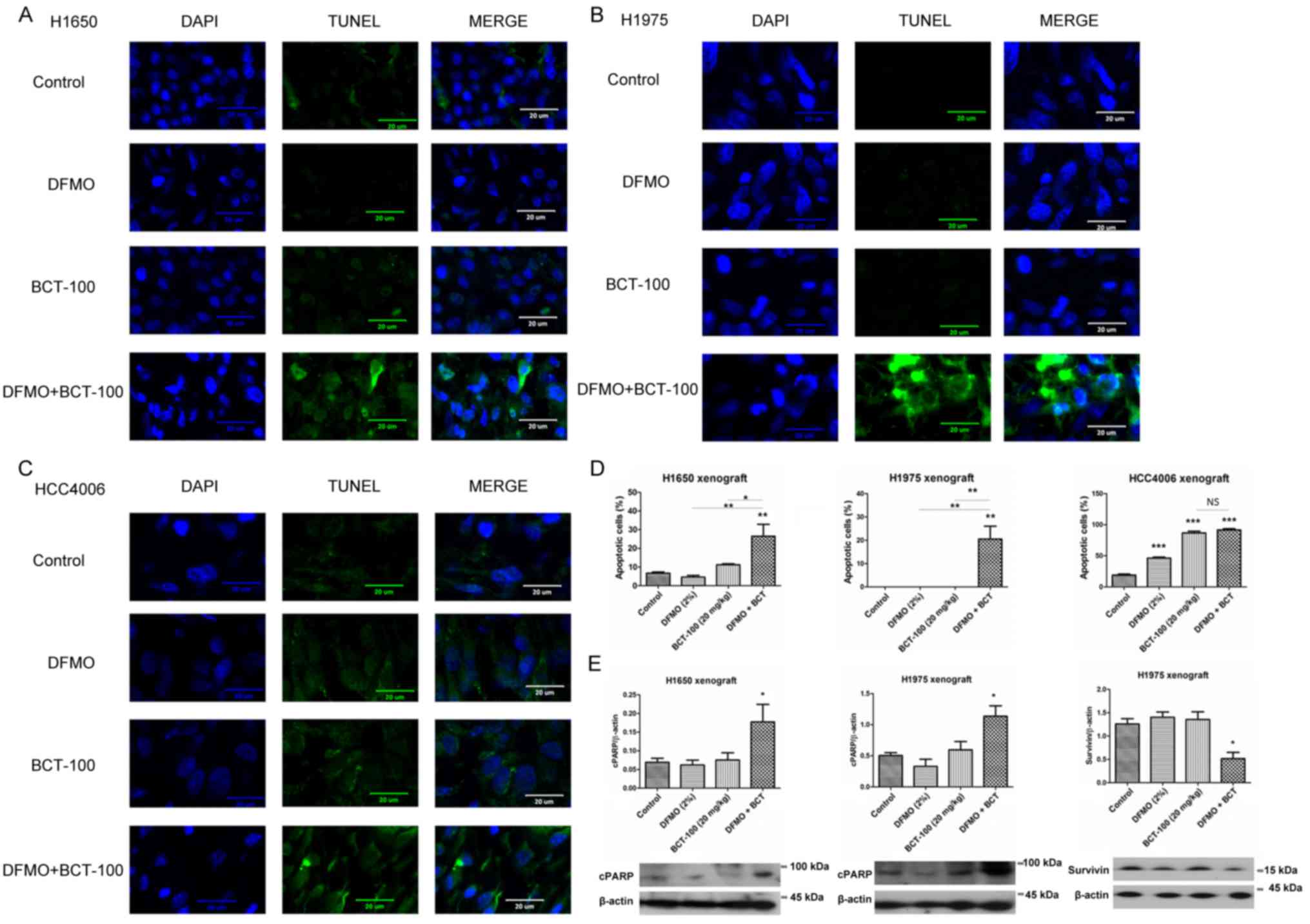|
1
|
Delage B, Fennell DA, Nicholson L, McNeish
I, Lemoine NR, Crook T and Szlosarek PW: Arginine deprivation and
argininosuccinate synthetase expression in the treatment of cancer.
Int J Cancer. 126:2762–2772. 2010.PubMed/NCBI
|
|
2
|
Chow AK, Ng L, Li Sing H, Cheng CW, Lam
CS, Yau TC, Cheng PN, Fan ST, Poon RT and Pang RW: Anti-tumor
efficacy of a recombinant human arginase in human hepatocellular
carcinoma. Curr Cancer Drug Targets. 12:1233–1243. 2012. View Article : Google Scholar : PubMed/NCBI
|
|
3
|
Feun L and Savaraj N: Pegylated arginine
deiminase: A novel anticancer enzyme agent. Exp Opin Invest Drugs.
15:815–822. 2006. View Article : Google Scholar
|
|
4
|
Thomas T and Thomas TJ: Polyamines in cell
growth and cell death: Molecular mechanisms and therapeutic
applications. Cell Mol Life Sci. 58:244–258. 2001. View Article : Google Scholar : PubMed/NCBI
|
|
5
|
Tanios R, Bekdash A, Kassab E, Stone E,
Georgiou G, Frankel AE and Abi-Habib RJ: Human recombinant arginase
I(Co)-PEG5000 [HuArgI(Co)-PEG5000]-induced arginine depletion is
selectively cytotoxic to human acute myeloid leukemia cells. Leuk
Res. 37:1565–1571. 2013. View Article : Google Scholar : PubMed/NCBI
|
|
6
|
Cheng PN, Lam TL, Lam WM, Tsui SM, Cheng
AW, Lo WH and Leung YC: Pegylated recombinant human arginase
(rhArg-peg5,000mw) inhibits the in vitro and in vivo
proliferation of human hepatocellular carcinoma through arginine
depletion. Cancer Res. 67:309–317. 2007. View Article : Google Scholar : PubMed/NCBI
|
|
7
|
Lam SK, Li YY, Xu S, Leung LL; U KP, ;
Zheng YF, Cheng PN and Ho JC: Growth suppressive effect of
pegylated arginase in malignant pleural mesothelioma xenografts.
Respir Res. 18:802017. View Article : Google Scholar : PubMed/NCBI
|
|
8
|
Lam TL, Wong GK, Chow HY, Chong HC, Chow
TL, Kwok SY, Cheng PN, Wheatley DN, Lo WH and Leung YC: Recombinant
human arginase inhibits the in vitro and in vivo proliferation of
human melanoma by inducing cell cycle arrest and apoptosis. Pigment
Cell Melanoma Res. 24:366–376. 2011. View Article : Google Scholar : PubMed/NCBI
|
|
9
|
Lam TL, Wong GK, Chong HC, Cheng PN, Choi
SC, Chow TL, Kwok SY, Poon RT, Wheatley DN, Lo WH, et al:
Recombinant human arginase inhibits proliferation of human
hepatocellular carcinoma by inducing cell cycle arrest. Cancer
Lett. 277:91–100. 2009. View Article : Google Scholar : PubMed/NCBI
|
|
10
|
Yau T, Cheng PN, Chan P, Chen L, Yuen J,
Pang R, Fan ST, Wheatley DN and Poon RT: Preliminary efficacy,
safety, pharmacokinetics, pharmacodynamics and quality of life
study of pegylated recombinant human arginase 1 in patients with
advanced hepatocellular carcinoma. Invest New Drugs. 33:496–504.
2015. View Article : Google Scholar : PubMed/NCBI
|
|
11
|
Lam SK, Li YY, Zheng CY and Ho JC:
Downregulation of thymidylate synthase and E2F1 by arsenic trioxide
in mesothelioma. Int J Oncol. 46:113–122. 2015. View Article : Google Scholar : PubMed/NCBI
|
|
12
|
Li YY, Lam SK, Mak JC, Zheng CY and Ho JC:
Erlotinib-induced autophagy in epidermal growth factor receptor
mutated non-small cell lung cancer. Lung Cancer. 81:354–361. 2013.
View Article : Google Scholar : PubMed/NCBI
|
|
13
|
Brenner T, Fleming TH, Spranz D, Schemmer
P, Bruckner T, Uhle F, Martin EO, Weigand MA and Hofer S: Reactive
metabolites and AGE-RAGE-mediated inflammation in patients
following liver transplantation. Mediators Inflamm.
2013:5014302013. View Article : Google Scholar : PubMed/NCBI
|
|
14
|
Nicoletti R, Venza I, Ceci G, Visalli M,
Teti D and Reibaldi A: Vitreous polyamines spermidine, putrescine,
and spermine in human proliferative disorders of the retina. Br J
Ophthalmol. 87:1038–1042. 2003. View Article : Google Scholar : PubMed/NCBI
|
|
15
|
Ho JC, Tam TC and Lam SK: Salvage therapy
beyond targeted therapy in lung adenocarcinoma. Semin Respir Crit
Care Med. 34:837–844. 2013. View Article : Google Scholar : PubMed/NCBI
|
|
16
|
Qiu F, Huang J and Sui M: Targeting
arginine metabolism pathway to treat arginine-dependent cancers.
Cancer Lett. 364:1–7. 2015. View Article : Google Scholar : PubMed/NCBI
|
|
17
|
Mussai F, Egan S, Higginbotham-Jones J,
Perry T, Beggs A, Odintsova E, Loke J, Pratt G; U KP, ; Lo A, et
al: Arginine dependence of acute myeloid leukemia blast
proliferation: A novel therapeutic target. Blood. 125:2386–2396.
2015. View Article : Google Scholar : PubMed/NCBI
|
|
18
|
Majumdar R, Shao L, Minocha R, Long S and
Minocha SC: Ornithine: The overlooked molecule in the regulation of
polyamine metabolism. Plant Cell Physiol. 54:990–1004. 2013.
View Article : Google Scholar : PubMed/NCBI
|
|
19
|
Shantz LM and Levin VA: Regulation of
ornithine decarboxylase during oncogenic transformation: Mechanisms
and therapeutic potential. Amino Acids. 33:213–223. 2007.
View Article : Google Scholar : PubMed/NCBI
|
|
20
|
Svensson KJ, Welch JE, Kucharzewska P,
Bengtson P, Bjurberg M, Påhlman S, Dam Ten GB, Persson L and
Belting M: Hypoxia-mediated induction of the polyamine system
provides opportunities for tumor growth inhibition by combined
targeting of vascular endothelial growth factor and ornithine
decarboxylase. Cancer Res. 68:9291–9301. 2008. View Article : Google Scholar : PubMed/NCBI
|
|
21
|
Miller-Fleming L, Olin-Sandoval V,
Campbell K and Ralser M: Remaining mysteries of molecular biology:
The role of polyamines in the cell. J Mol Biol. 427:3389–3406.
2015. View Article : Google Scholar : PubMed/NCBI
|
|
22
|
Russell DH and Snyder SH: Amine synthesis
in regenerating rat liver: Extremely rapid turnover of ornithine
decarboxylase. Mol Pharmacol. 5:253–262. 1969.PubMed/NCBI
|
|
23
|
Meyskens FL Jr, McLaren CE, Pelot D,
Fujikawa-Brooks S, Carpenter PM, Hawk E, Kelloff G, Lawson MJ,
Kidao J, McCracken J, et al: Difluoromethylornithine plus sulindac
for the prevention of sporadic colorectal adenomas: A randomized
placebo-controlled, double-blind trial. Cancer Prev Res (Phila).
1:32–38. 2008. View Article : Google Scholar : PubMed/NCBI
|
|
24
|
Mackenzie GG, Ouyang N, Xie G, Vrankova K,
Huang L, Sun Y, Komninou D, Kopelovich L and Rigas B:
Phospho-sulindac (OXT-328) combined with difluoromethylornithine
prevents colon cancer in mice. Cancer Prev Res. 4:1052–1060. 2011.
View Article : Google Scholar
|
|
25
|
Chen Y, Hu J, Boorman D, Klein-Szanto A
and O'Brien TG: Therapy of murine squamous cell carcinomas with
2-difluoromethylornithine. J Carcinog. 3:102004. View Article : Google Scholar : PubMed/NCBI
|
|
26
|
Schipper RG, Penning LC and Verhofstad AA:
Involvement of polyamines in apoptosis. Facts and controversies:
Effectors or protectors? Semin Cancer Biol. 10:55–68. 2000.
View Article : Google Scholar : PubMed/NCBI
|
|
27
|
Tomasi ML, Ryoo M, Skay A, Tomasi I,
Giordano P, Mato JM and Lu SC: Polyamine and methionine
adenosyltransferase 2A crosstalk in human colon and liver cancer.
Exp Cell Res. 319:1902–1911. 2013. View Article : Google Scholar : PubMed/NCBI
|
|
28
|
Rounbehler RJ, Li W, Hall MA, Yang C,
Fallahi M and Cleveland JL: Targeting ornithine decarboxylase
impairs development of MYCN-amplified neuroblastoma. Cancer
Res. 69:547–553. 2009. View Article : Google Scholar : PubMed/NCBI
|
|
29
|
Wang MF, Liao YF, Hung YC, Lin CL, Hour
TC, Lue KH, Hung HC and Liu GY: Hydroxydibenzoylmethane induces
apoptosis through repressing ornithine decarboxylase in human
promyelocytic leukemia HL-60 cells. Exp Mol Med. 43:189–196. 2011.
View Article : Google Scholar : PubMed/NCBI
|
|
30
|
Fung MKL and Chan GC: Drug-induced amino
acid deprivation as strategy for cancer therapy. J Hematol Oncol.
10:1442017. View Article : Google Scholar : PubMed/NCBI
|















